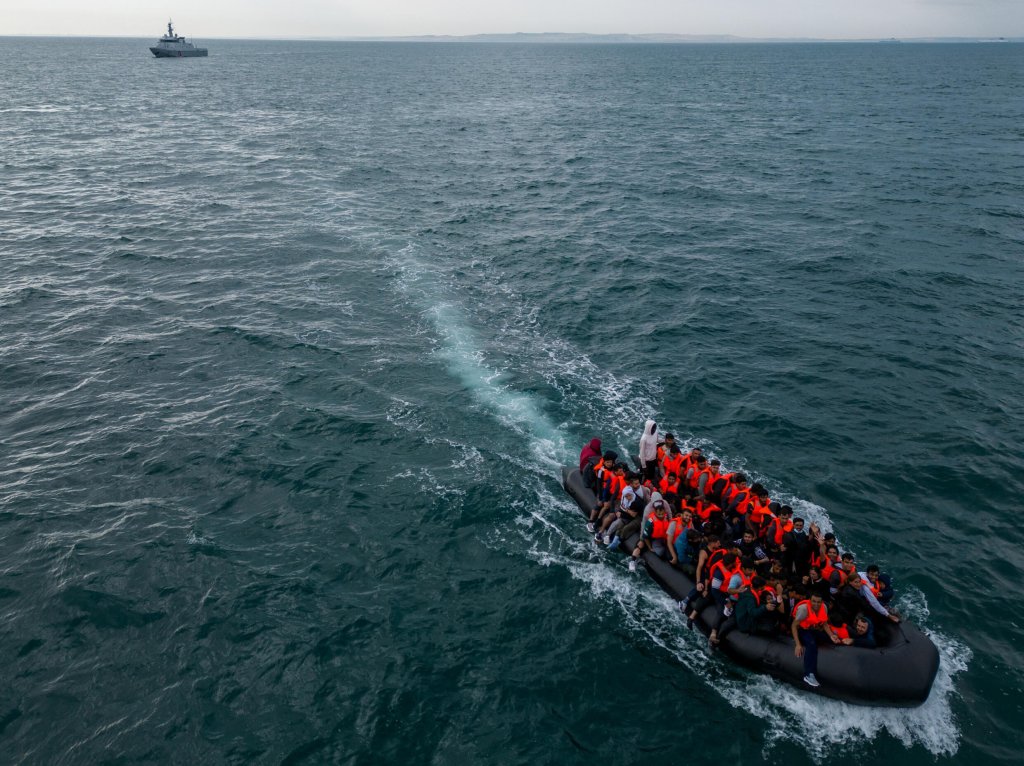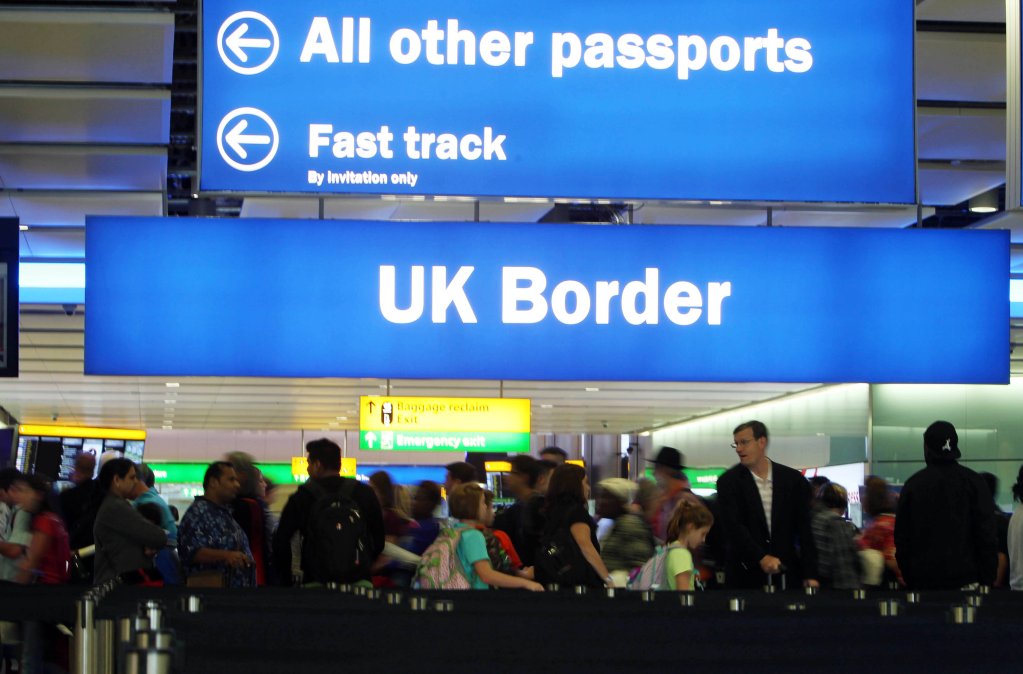Britain is set to launch a new sanctions regime aimed at disrupting people smuggling networks operating across the English Channel. The policy, which is set to be in place by the end of the year, will target smugglers and Chinese manufacturers of boats and motors, including asset freezes to curb irregular crossings.
The United Kingdom will implement new sanctions to go after the leaders of people smuggler networks as well as the Chinese manufacturers of boats and motors they use.
The policy, which is set to be in place by the end of the year, will ban entry to those involved in people smuggling and punish those who do business with them and freeze their assets, according to media reports.
Foreign Minister David Lammy was quoted by the BBC as saying that many of the boats used by alleged people smugglers are from China, "...When you look at those boats, where do the engines come from? Where does the rubber come from?"
"I’m proud to announce that the UK is set to be the first country in the world to develop legislation for a new sanctions regime specifically targeting irregular migration and organized immigration crime. This will help to prevent, combat, deter, and disrupt irregular migration and the smuggling of migrants into the UK," Lammy said in a statement.

However, British authorities can only freeze assets in the UK and the government did not go into details about how they could freeze the assets of suspected people smugglers who are operating outside of the UK.
On its website, the UK government referred to the new sanctions as a "bold innovation" that would bolster the government’s ability "to prevent, combat, deter and disrupt irregular migration and hold the perpetrators accountable".
Domestic and international agreements
The new planned sanctions build on other policies to curb migration and tighten border controls. The Border Security Command with a reported price tag of 150 million pounds allies with countries such as Iraq and Germany to disrupt human smuggling networks. Similarly, the G7 Anti-Smuggling Action Plan, signed last October paved the way for joint border intensification measures that include intelligence sharing between the G7 countries.
Earlier this month, the British newspaper The Guardian reported that the government planned to impose phone bans and social media blocks as well as travel restrictions on suspected people traffickers as part of its Border Security Bill expected to be published in the coming weeks.
In contrast, the rights group Refugee Council called on the government to make safe and legal routes available, urging for the introduction of 10,000 refugee visas in an effort to reduce the deaths in the English Channel.
In a report entitled, Deaths on the Channel: What Needs to Change, the Refugee Council said that evidence from similar visa initiatives in the United States shows that safe and legal routes, when combined with law enforcement and border security, can reduce irregular migration and save lives.
According to the UN migration agency IOM, more than 70 people died in connection to the Channel migration route from northern France to the UK last year, making it the deadliest year on record for irregular crossings through the English Channel. The Refugee Council warned that unless a new approach to irregular migration is taken, this year could see a further increase in deaths. The Refugee Council also called on the French and UK authorities to implement better documentation of fatalities resulting from perilous boat crossings from France as well as improved search and rescue facilities along the coast of northern France.
Read AlsoUK channel crossings surge by 25% in 2024
Asylum backlogs and backlash
The Labor Party, which was elected into office last July, is under immense political pressure to limit irregular arrivals by people crossing the English Channel on small boats.
According to the Interior Ministry, the number of migrants crossing the English Channel into the United Kingdom in 2024 rose by 25 percent. The numbers rose to 36,816 in 2024, from 29,437 in 2023, though still below the 2022 record of 45,774. People from Vietnam, Iran, and Syria accounted for the uptick in numbers while Afghan nationals made up the single largest group of arrivals in the first nine months of last year.

UK Government data shows that there were 97,170 cases or about 133,409 people who are awaiting an initial decision on their asylum claims. Asylum backlogs reached record levels and costs hit 5.4 billion pounds in the last year.
"We are acting to restore order to the asylum system, clearing the backlog, and ensuring that the rules are properly respected and enforced by increasing returns. Only by doing this, and working upstream to smash the gangs, will we reduce overall small boat crossings," the government said in a statement.
The UK has also begun fast-tracking deportations of people who do not have a legal right to remain in the country. Last July, authorities deported 46 individuals deemed to be "foreign criminals and immigration offenders" to Vietnam and East Timor. Additionally, in October the government repatriated a record number of 44 Nigerians and Ghanaians to their home countries.
Read Also UK deports 46 individuals to Vietnam and East Timor on charter flight
